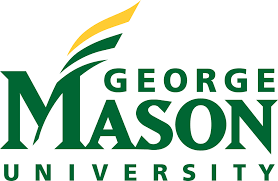George Mason University recognised by MWCOG
George Mason University received the Metropolitan Washington Council of Governments’ (MWCOG) Commuter Connections 2023 Employer Recognition Award for the Incentives category. Josh Cantor, Mason’s director of Parking and Transportation, accepted the award at a ceremony held at the National Press Club in Washington, D.C.
“Credit goes to our staff, contractors, as well as our regional partners for helping provide so many commuting options that make a difference in the success of our students and employees,” said Cantor.
“George Mason University’s multimodal incentives program has been successful in getting employees and students to make the switch away from single-occupant vehicles as their main mode of commuting, which has notably reduced the university’s carbon footprint and decreased commuting costs for employees,” said Nicholas Ramfos, director of Commuter Connections. “Mason is setting a great example for employers in the region looking to implement their own commuter incentives programs.”
Since last winning an Employer Recognition Award in 2006, Mason has enhanced its unique incentives program centered around a robust bicycle commuting program, a network of shuttles to connect employees to transit options, teleworking, and a flexible work schedule environment.
Mason’s Bike Commuter Choice Program offers a four-tier sliding scale of financial assistance and benefits based on biking frequency. Participants also receive a free bike lock, bike safety information, and bicycling-related giveaways for registering their bikes. Bike racks and showers are also available across Mason’s campuses.
Mason Shuttles include Wi-Fi and bike racks, connecting riders to Prince William County’s OmniRide bus system and the Vienna Metrorail Station. There are five free shuttle routes, along with preferred parking for carpools and vanpools, rebates for formal carpools, plus financial assistance of up to $300 pre-tax per month to help defray public transit or vanpool costs for employees. Flextime and compressed work weeks are available as well.
Of those employed on campus, 822 use alternative transportation methods, an additional 1,764 staff telework at least part time, and 1,467 faculty members telework informally based on class schedules. In 2022, the incentives programs led to a savings of approximately 9,876,600 employee vehicle miles traveled (VMT) and about 448,900 gallons of gas.

